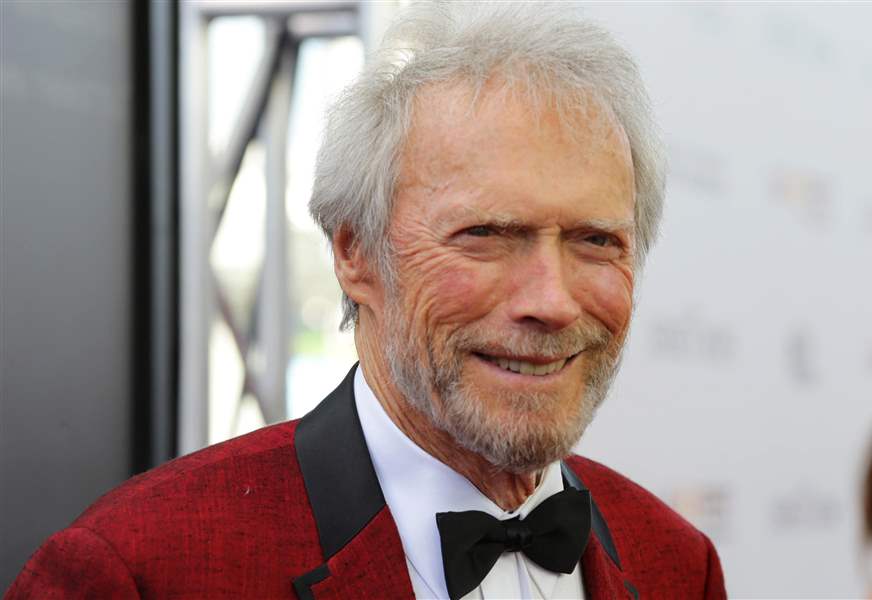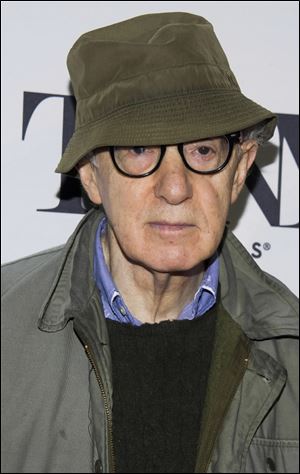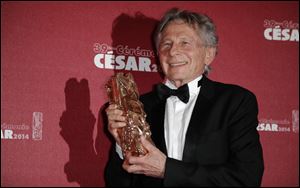
MOVIES
Working late in life, directors refuse to say cut
7/23/2014
Eastwood

Eastwood
Visiting a retired Frank Capra at his Sierra Nevada hideaway, Clint Eastwood was baffled.

Allen
“I always thought: ‘He could be making a film right now. He’s as lucid as could be. Here’s the great Frank Capra not doing it,‘” Eastwood said of the famed director, who died in 1991 at 94, three decades after his last film. “I always thought, ‘I wonder why that is?‘”

Polanski
Eastwood, who at 84 just released the musical Jersey Boys and wrapped shooting on the Navy SEAL drama American Sniper, isn’t the only filmmaker blowing past conventional retirement age. This Friday, Woody Allen, 78, will, like clockwork, release his latest, the French Riviera romantic comedy Magic in the Moonlight. He’s also already on to the next one, shooting in Rhode Island this summer.
In June came Venus in Fur, from 80-year-old Roman Polanski. And in May, 83-year-old Jean-Luc Godard, the perpetual enfant terrible, premiered his 3-D Goodbye to Language at the Cannes Film Festival.
Both European iconoclasts remain as mischievous in old age as Allen and Eastwood have been steadfast. Polanski’s film is a gloriously comic, self-referential gender play. Godard’s film — in which his dog played a starring role — was more experimental than most 25-year-old’s would dare. It was greeted in Cannes by an audience member’s cry: “Godard forever!”
At a time when literary giants like Philip Roth, 81, and Alice Munro, 83, have quit their craft, many of cinema’s auteurs have stubbornly persisted, while at the same time churning out frequently acclaimed, often vibrant films in a youth-driven industry.
“In Hollywood there is that kind of hackneyed, commercial thinking where they think, ‘Oh, this guy is over the hill, this guy can’t direct that kind of picture,‘” Allen says. “But the truth of the matter is that in my lifetime, there have been many directors like John Ford, John Huston, Billy Wilder who were wonderful as they got older and they made sometimes better pictures than they made when they were younger.”
Certainly, film history is littered with directors who worked well past retirement age. Akira Kurosawa, Sidney Lumet and Robert Altman all worked into their 80s, producing some fine films: Altman’s Gosford Park, Kurosawa’s Dreams, Lumet’s Before the Devil Knows You’re Dead. Huston, at 81, died months after the release of The Dead, his Oscar-nominated adaptation of the James Joyce story. The French film director Alain Resnais was active right up to his passing, at 91, in March.
Such longevity would only be possible for widely admired filmmakers who still have the drive to tell a story and the industry weight to attract financing. Because of tight-fisted studios, it’s arguably harder today to get a movie made than ever before, adding to what’s already a hugely taxing profession.
Martin Scorsese, 71, sounded slightly dejected by this part of contemporary moviemaking when releasing The Wolf of Wall Street, an explicit romp of a movie few would associate with a director in his 70s. But it also took years to get a green light.
“The problem is, it’s too much,” Scorsese said last year. “It’s almost becoming that I want to do so much, and when you get to this vantage point, there’s not much time left.”
Around the same time, Scorsese guessed he had about two movies left in him.
Ridley Scott, 76, has mirrored Scorsese in prolificacy. Along with the Moses tale Exodus: Gods and Kings due out later this year, he has a dozen projects in development as a producer and plans for a Blade Runner sequel.
But few have kept their edge like Scorsese. Late-period films are generally more placid things. Often, even a good film for a master filmmaker late in life is merely a footnote to their younger, more urgent work.
Such a fear has previously prompted Quentin Tarantino, 51, to declare that he’ll never become “an old-man filmmaker.” He has instead suggested he will quit moviemaking around 60 so as to not dilute his filmography with weaker rehashes.
But such catalog care is of little concern for others, who continually filter their lives through a camera lens. Between the two of them, Eastwood and Allen have combined to make a staggering 20 films since turning 70.
What compels them to make a film year after year? The answer, Allen said in an earlier interview, is pure distraction from sitting at home pondering, “Gee, life is meaningless. We’re all going to die.”
“I get to get up in the morning and go into work and there’s Penelope Cruz, these beautiful women and scintillating guys — Alec Baldwin, Jesse Eisenberg,” Allen said. “So I’m distracted for the day with trivial problems.”